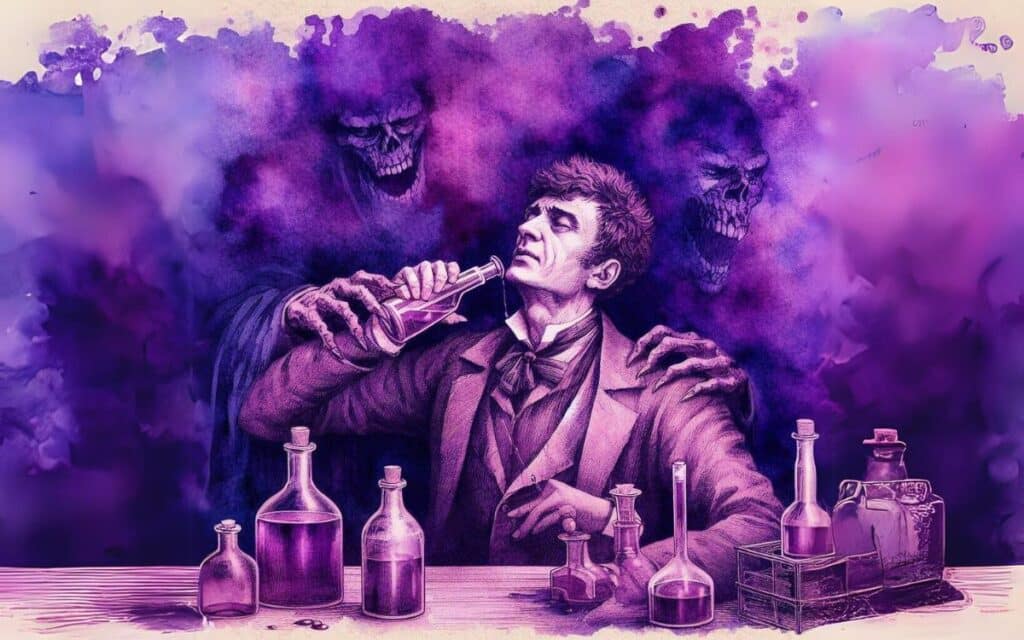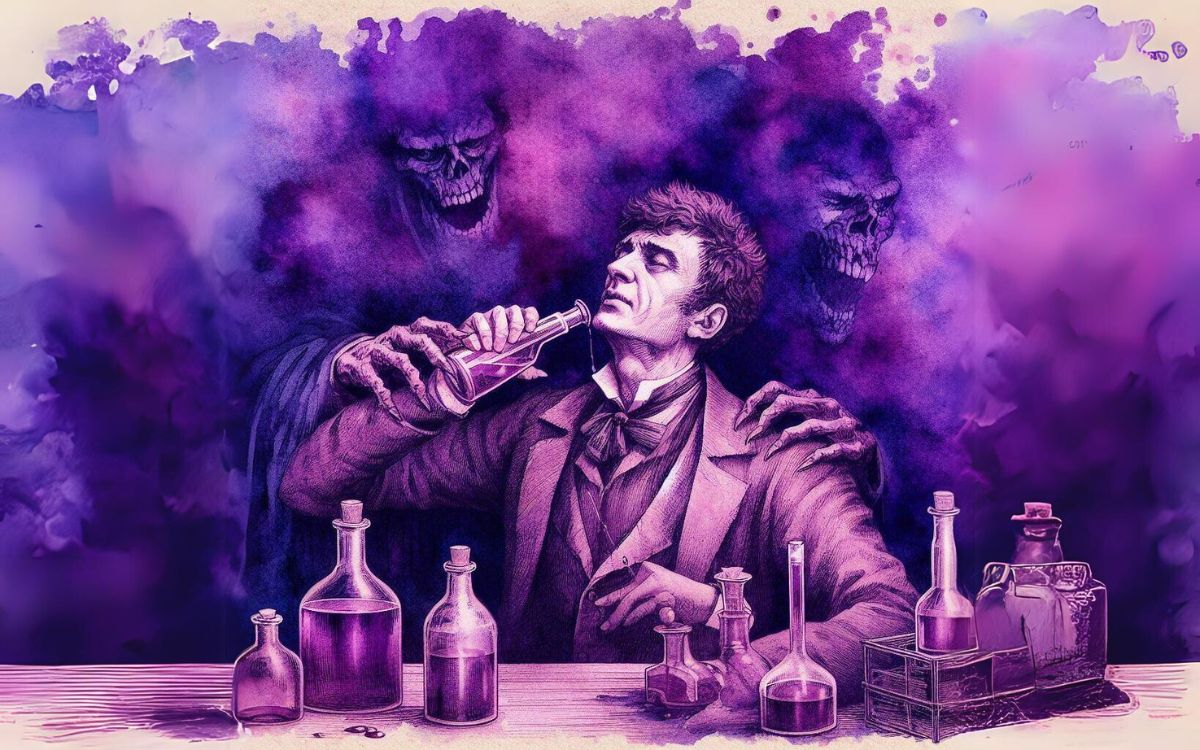Horror stories often portray addiction, offering a unique lens to view and understand this real-world issue while providing a cathartic escape for the audience, writes TERRY SHERWOOD

The horror genre is thought, among other things (they are always called things), to give its audience a cathartic experience of release.
I heard this comment on a recent award programme broadcast on a streaming service that went further to say this helped with viewers’ mental health, allowing them to cope with the troubles that we all know have manifested because of the pandemic and other life factors.
The addiction horror genre is not part of the horror world; instead, they are crime stories due to the lack of supernatural influences.
Addiction, in any form, remains a powerful monster to control. Has the horror genre made this single drive or lust palatable to its audience or simply a subject for exploration?
Literary examples such as Robert Louis Stevenson’s novella, The Strange Case of Dr Jekyll and Mr Hyde, can be read as a story of addiction to drink. One ingests chemicals to free themselves of societal inhibitions.
Dracula by Bram Stoker has elements of addiction in the vampire myth. The need to destroy at all costs to preserve a life is a strong theme. Be it the life of the undead or the righteous life of humans, In Hammer’s film release Dracula (1957), Peter Cushing as Van Helsing makes the comparison on-screen of’ vampirism being like an addiction. The actual quote is: “Established that victims consciously detest being dominated by vampirism but are unable to relinquish the practice, similar to addiction to drugs.”
Hollywood is filled with actors, directors, and actresses who either drank themselves to death, took pills in a state of depression, or discovered a new high in the opium dens. Many are glorified in the mythology of the Dream Factory.
Do Film Killers Actually Have Murder Addictions?
Rock and roll, of course, is a haven for deaths by misadventure of this nature. When these happen, people seem to nod their heads, say it’s a tragedy, and then shuffle off to the liquor store or nearest legal or not-so-legal dope seller.
Film-wise, killers such as Jason and Michael Myers all blindly kill out of lust, or is it an addiction? The murders become the story, taking the reason away. Knife fodder, as I call it, becomes the story. but the people caught up in the carnage. Cautionary tales of overindulgence On Friday, the 13th, the film series did have supernatural aspects in the later releases.
Chat rooms and sex sites have all become refuges for some, as illustrated in such films as Cam, Girlhouse, Dark Web, Unfriend, and many others. A lack of supernatural influences is prevalent.
Anthologies such as Lullabies for Suffering, edited by Mark Matthews and others, have come forward with harrowing stories of inhumanity towards oneself. Matthews speaks candidly about his addiction troubles and what he faces each day after recovery. I say, is this a horror story or therapy? I suggest they are illuminating events of torture and pain for the individual.
These stories and films cross the line from horror into crime fiction. Many do not use supernatural means of moving a story, no more than the Biker films of the 1960s were horror films, unless you count Werewolves on Wheels.
I suggest these stories and the genre of film are like watching a demolition derby or an auto race to see who dies, making it more eventful. These stories also serve as cautionary tales for those locked into addiction. I suggest that they are not horror stories but have a loose association with the body horror movement if the inflicting of physical pain is a criterion for inclusion.
Just as many of the revenge horror stories are not horror but crime stories of mutilation, Many moments can be found in Noir thrillers and murder mysteries of today.
I would say that addiction horror gives a voice to a problem that all people face in some form. It is a back-sided view of ‘personal hell’ that many experience. Your world may be out of kilter, but the next person is not. Addiction does affect those around one, and that once again is a fight to return to the ‘norm’ of whatever that may be.
Tell us your thoughts on this article in the comments section below!



